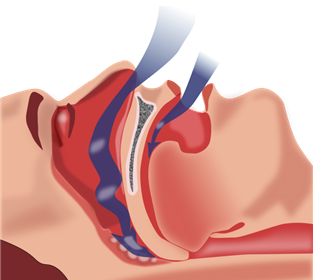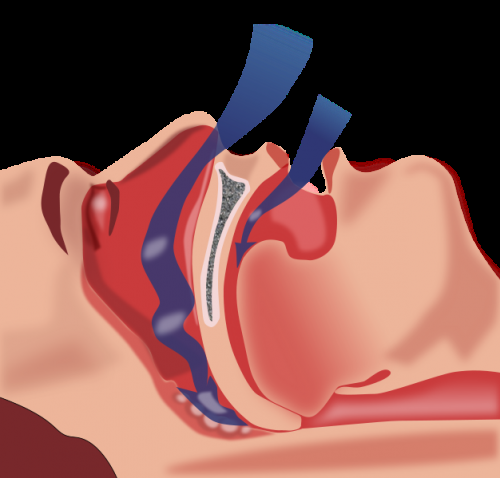Untreated sleep apnea is associated with flu hospitalization

As we approach flu season, adults with obstructive sleep apnea may want to take extra precautions. A study published online as an accepted paper in the Journal of Clinical Sleep Medicine is the first to find that patients with sleep apnea who did not use CPAP therapy were more likely to be hospitalized with the flu.
Results of the retrospective study show that 61% of patients (17 of 28) who either weren’t prescribed CPAP to treat their sleep apnea or weren’t adherent to their CPAP treatment were hospitalized with the flu, compared with 24% of patients (6 of 25) who were adherent to CPAP therapy. Statistical analysis found that the patients who were non-adherent to CPAP were nearly five times more likely to be hospitalized with a flu infection, despite having a higher rate of flu vaccination.
“Our study would suggest that among patients with obstructive sleep apnea, those who use CPAP are less likely to be hospitalized because of an influenza infection than those who do not use CPAP,” said study coinvestigator Dr. Glen Greenough, associate professor of medicine, psychiatry and neurology at the Dartmouth-Hitchcock Medical Center in Lebanon, New Hampshire.
Greenough said the study provides further evidence that sleep is essential to health.
“These results would suggest that use of a treatment, CPAP, that improves sleep quality reduces the severity of influenza infection as determined by rate of hospitalization,” he said. “This might suggest that treating sleep apnea and thereby improving sleep quality has a beneficial effect on the immune system. It also suggests that treating sleep apnea with CPAP could help reduce hospitalizations thereby reducing health care costs.”
Nearly 30 million adults in the U.S. have obstructive sleep apnea, a chronic disease that involves the repeated collapse of the upper airway during sleep. Common warning signs include snoring and excessive daytime sleepiness. A common treatment is CPAP therapy, which uses mild levels of air pressure, provided through a mask, to keep the throat open during sleep.
The researchers at Dartmouth-Hitchcock Medical Center analyzed the medical records of 53 patients who had sleep apnea and a confirmed case of the flu between 2016-2018. The 28 patients categorized as non-adherent to CPAP treatment had a mean age of 63 years and were 54% male; the 25 CPAP-adherent patients had a mean age of about 60 years and were 52% male. CPAP use was assessed by data download, with adherence defined as usage of at least four hours per night for at least 70% of nights.
Source: Read Full Article
